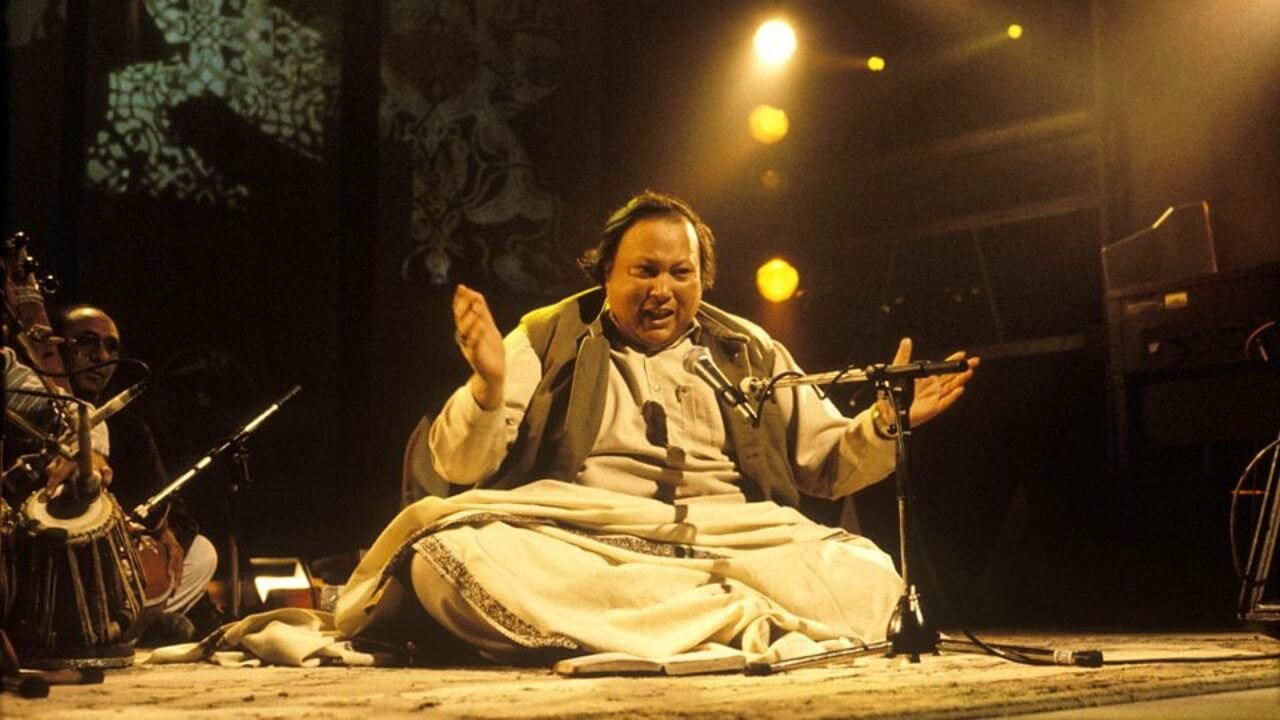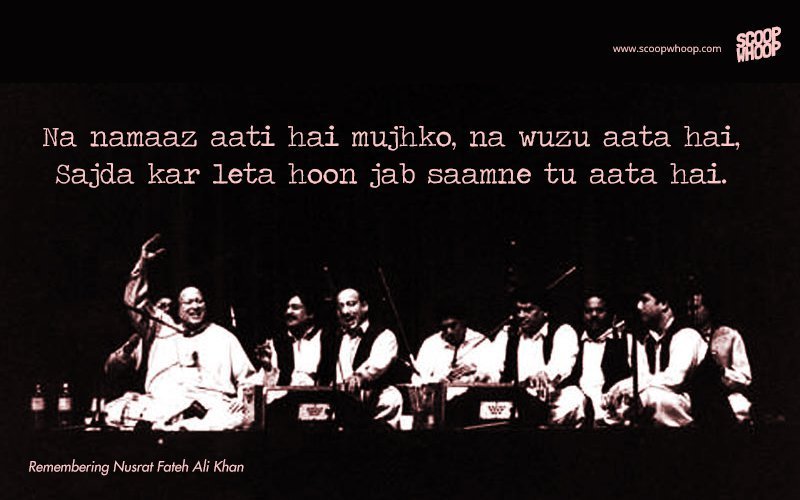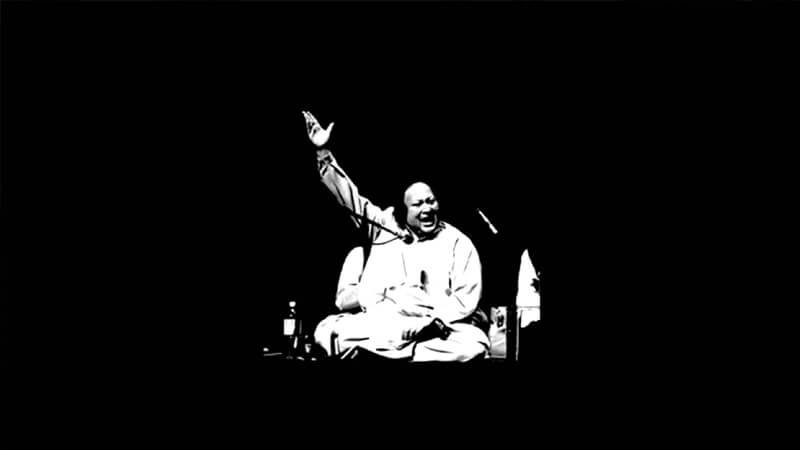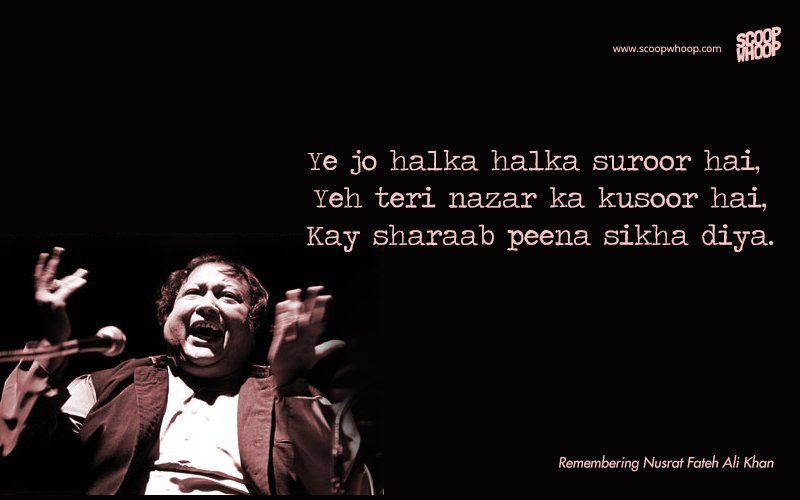Having grown up in South India, I must confess that I was introduced to Ustad Nusrat Fateh Ali Khan pretty late in life. The language barrier meant that I didn’t understand a word of what he was singing. It took a few very patient friends and some relentless googling to finally grasp what he was singing in a such a heartfelt manner (and if I am to be honest, I still can’t claim that I understand every word).

But the more I hear of Nusrat, the more I’ve come to realize that it’s not just about the lyrics, which explains the worldwide acclaim. Don’t get me wrong, the lyrics are brilliant too. Some of those lines are un-bloody-believable. That someone can effortlessly put into words the feelings that I struggle so hard to express or even understand seems unfathomable. But let’s forget the lyrics for a moment. It’s not so hard if you pay attention to that voice.
To put my point across, you need to listen to this song. The first two minutes will suffice. And if you’re particularly impatient, you can skip to 1 minute 30 seconds and begin from there.
I mean absolutely no disrespect to Eddie Vedder, but he tries. He really tries. He starts off the song and his singing is soulful, you have to give him that. But all that is forgotten once Nusrat takes over.
If Vedder’s voice is soulful, Nusrat’s is heavenly. And that’s exactly the point I am trying to make.

How do you even begin to explain such a voice? How can someone’s voice be heart-wrenching and uplifting at the same time? How is it that someone can make you dream and despair simultaneously? As Geoff Dyer puts it, Nusrat’s voice “can rend the soul even as it soothes it.”
Whether you’ve had the best of days or the worst of days, when you get back home, just dim the lights, make yourself a drink and play one of his qawwalis.

The literal meaning of the word Qawwali is ‘utterance’. Nusrat was bestowed with the title of Shahen-shah-e- qawwali – The King of Kings when it comes to Qawwalis. That is to say, Nusrat doesn’t sing, he utters. He speaks in the divine tongue, which explains why his voice can transport us into the dreamlike state where everything seems bright and surreal.
There is a certain honesty about that voice. A purity. I’ve never imagined what God’s voice must sound like, but if you ask me, that’s probably what it’s like. Every word, every utterance, sounds like God’s heavenly voice, raining down upon us, a balm for all the pain we endure, a reassurance that it will all be fine as long as we live in the moment.
It’s like a river, flowing down the hills. Effortlessly, majestically. With heavenly grace, the river traces its path to the ocean. So too does Nusrat’s voice as it flows out, reaching for the stars. And it takes you with it on an endless journey, where you’re completely lost in the euphoria.

And now if you’ll excuse me, I’m going to make myself a peg and listen to another soulful rendition of Dam Mast Qalandar.

















